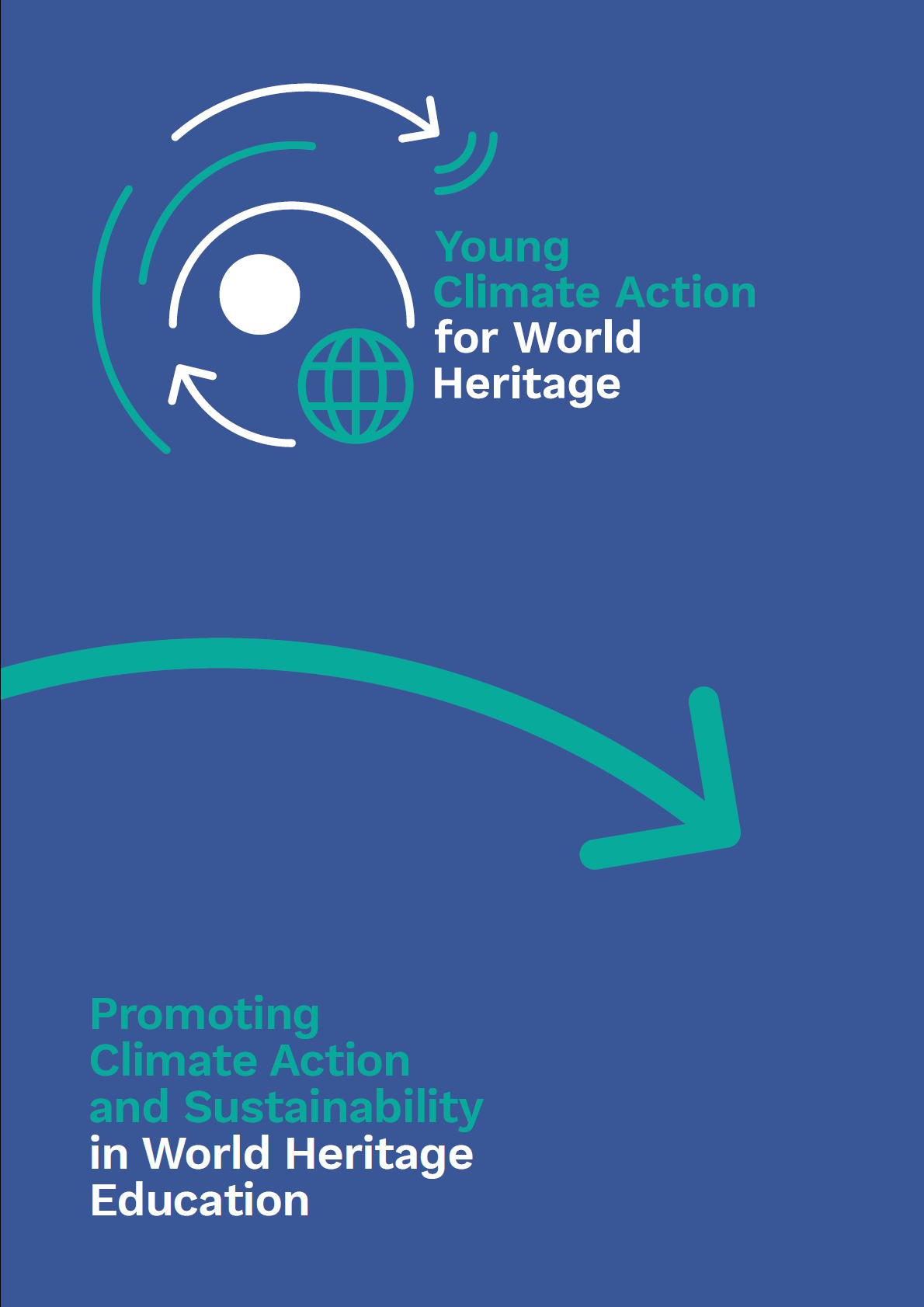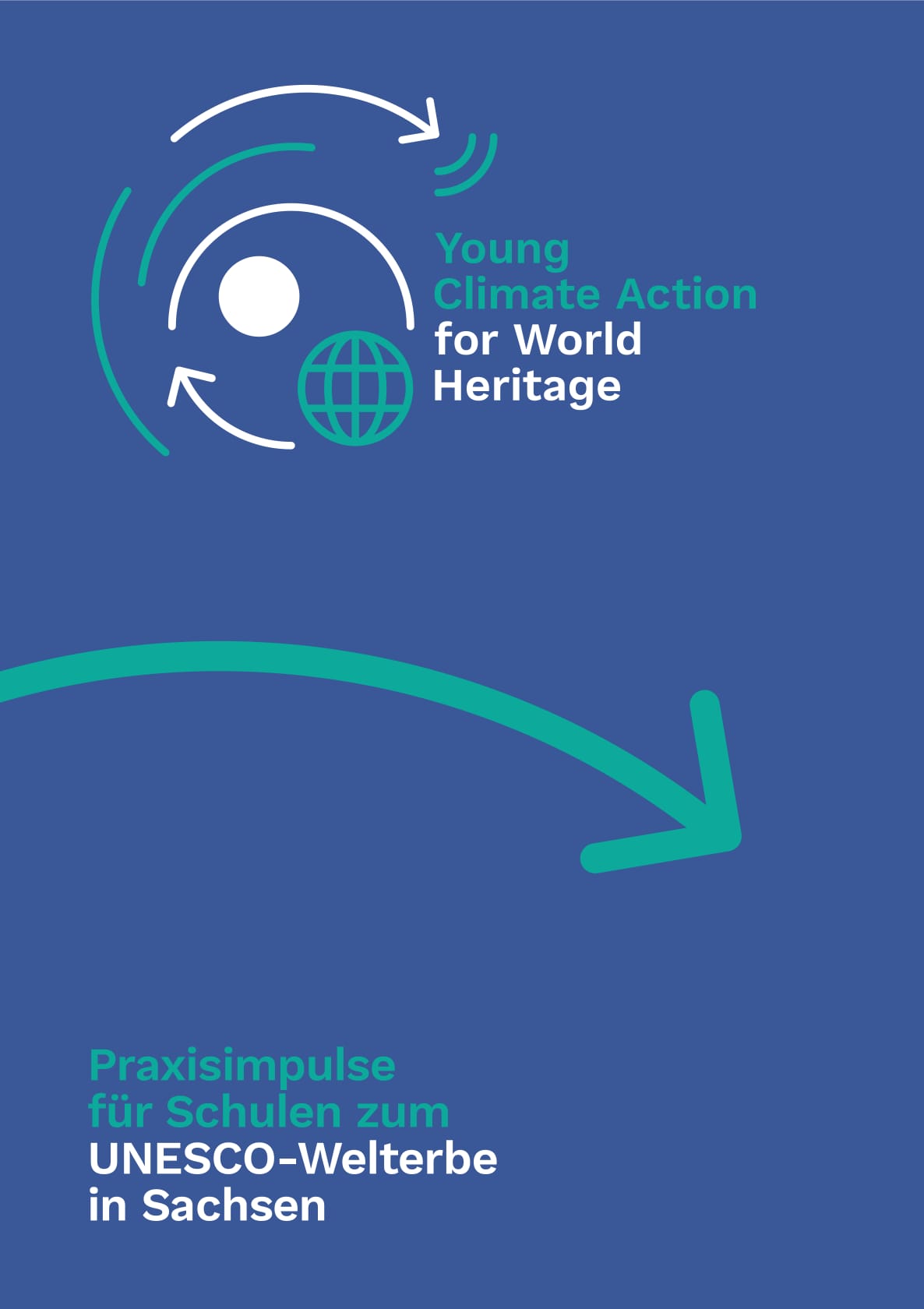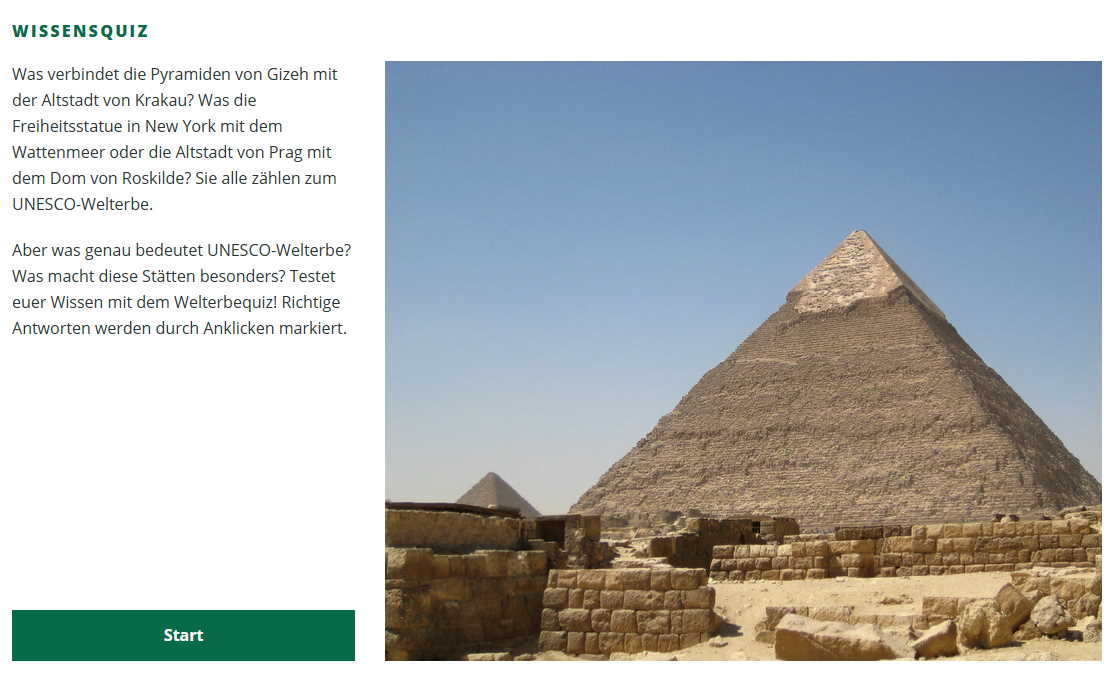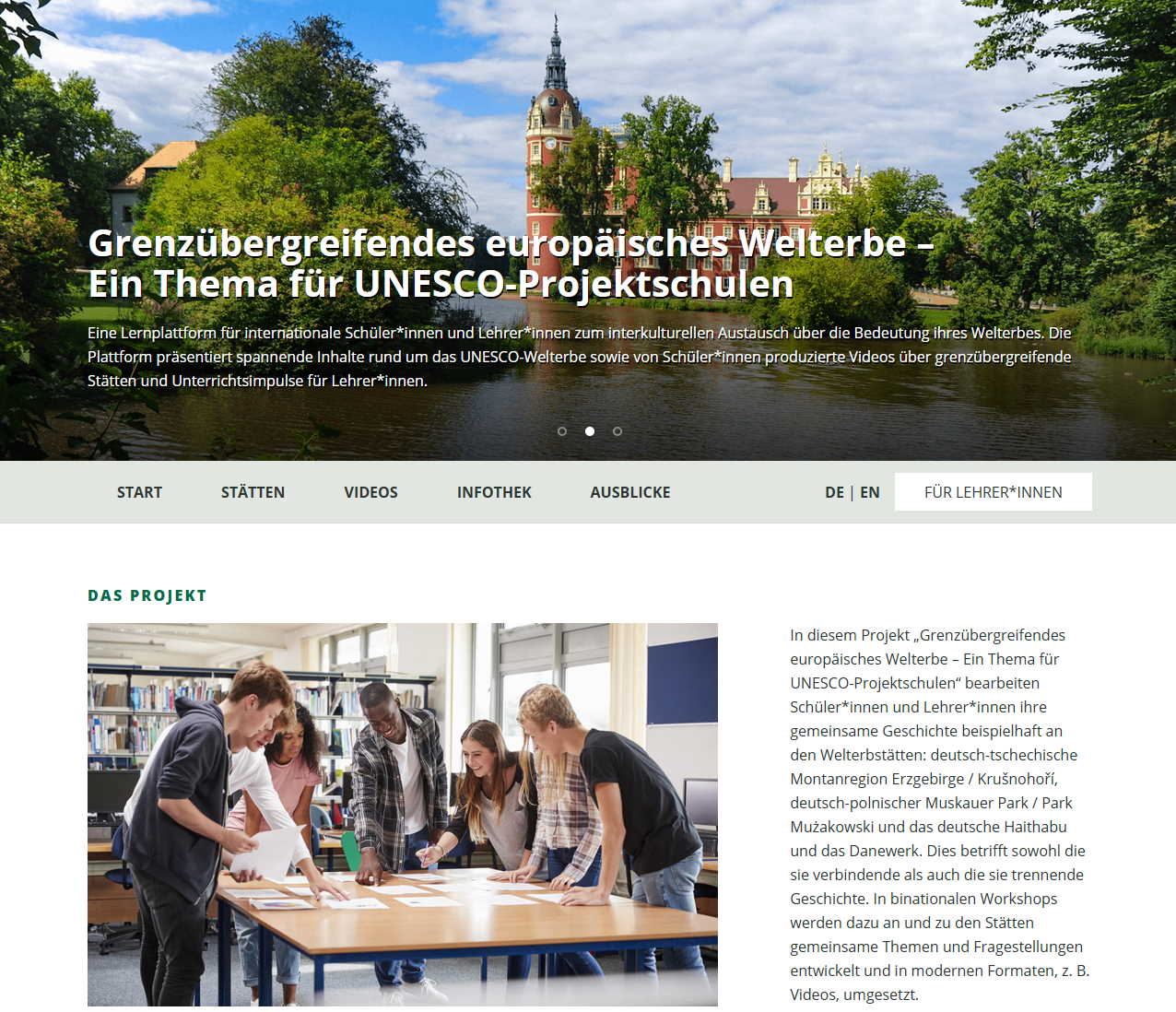Publications
Young Climate Action for World Heritage. Promoting Climate Action and Sustainability in World Heritage Education. (2025)
Publishers: Institute Heritage Studies, Deutsche UNESCO-Kommission, Deutsche Bundesstiftung Umwelt
Editors: Marie-Theres Albert, Claudia Grünberg, Jasmin Frischemeier, Klaus Schilling, Constanze Fuhrmann
→ Download (PDF)
Practical impulses for schools on UNESCO World Heritage in Saxony. (2024)
Publisher: Institute Heritage Studies, German UNESCO Commission
With the support of the Saxon State Office for Monument Preservation, the Saxon State Ministry of Culture, the State Office for Schools and Education and the State Coordination of UNESCO Project Schools in Saxony.
(Only available in German)
→ Download (PDF)
Newspaper Articles
Many of the students' projects on heritage and climate protection were presented publicly and reached a diverse audience from the students' peers to their schools and the local communities. Several local newspapers reported the success of the project, the impressive engagement of the students, their teachers and schools as well as the World Heritage Sites. (The articles are available in German only)
Posters of “Young Climate Action for World Heritage”
The project, its highlights and results were summarised as posters for the schools and World Heritage Sites to continue raising awareness about the importance of Education for Sustainable development. You can download the posters here.
World Heritage Quiz
What is the connection between the Pyramids of Giza and the Historic Centre of Krakow? What connects the Statue of Liberty in New York with the Wadden Sea, or the Historic Centre of Prague with the Roskilde Cathedral? They are all UNESCO World Heritage sites.
But what exactly is UNESCO World Heritage today? What makes these sites special? Test your knowledge with the World Heritage Quiz! Mark the correct answers by clicking on them.
Transboundary European World Heritage - a Topic for UNESCO Associated Schools
The project "Transboundary European World Heritage - a Topic for UNESCO Associated Schools" aimed to familiarise students and teachers with the topic of the Transboundary World Heritage Sites: The Mining Cultural Landscape Erzgebirge/Krušnohoří, the German-Polish Muskauer Park/Park Mużakowski and the German Hedeby and the Danevirke. Using these three heritage sites as examples, the students and teachers explored their joint European history, discovered what themes link them together, and those which set them apart. In binational workshops they developed themes and questions regarding the transnational heritage sites and visualised them into contemporary formats.




